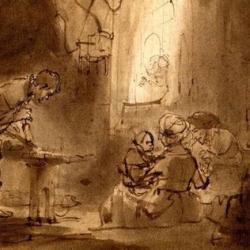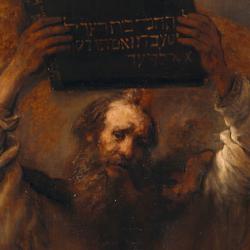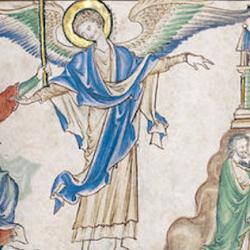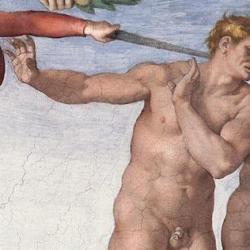Yahweh speaks the Ten Words to his son, Israel. The Words are ultimately pointing to the Son, who takes flesh to become true Israel. The Ten Words speak of Jesus, and Jesus is the final interpretation of their demands. “Honor your father and your mother,” the Lord says, and Jesus embodies perfect honor to His father and mother. Jesus slips away from his parents while they’re in Jerusalem, demonstrating, as Barth says, that children may honor their parents against their... Read more















